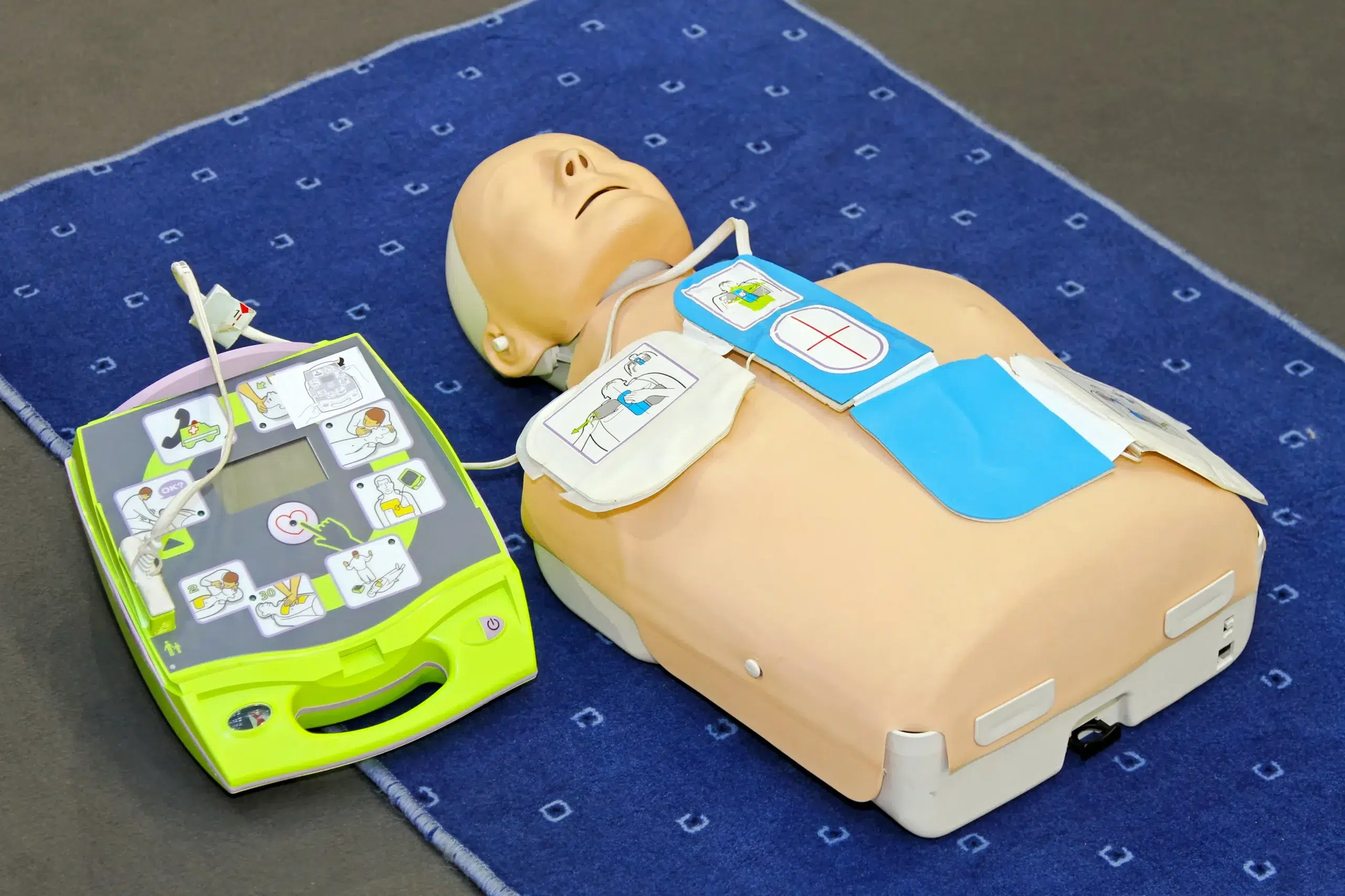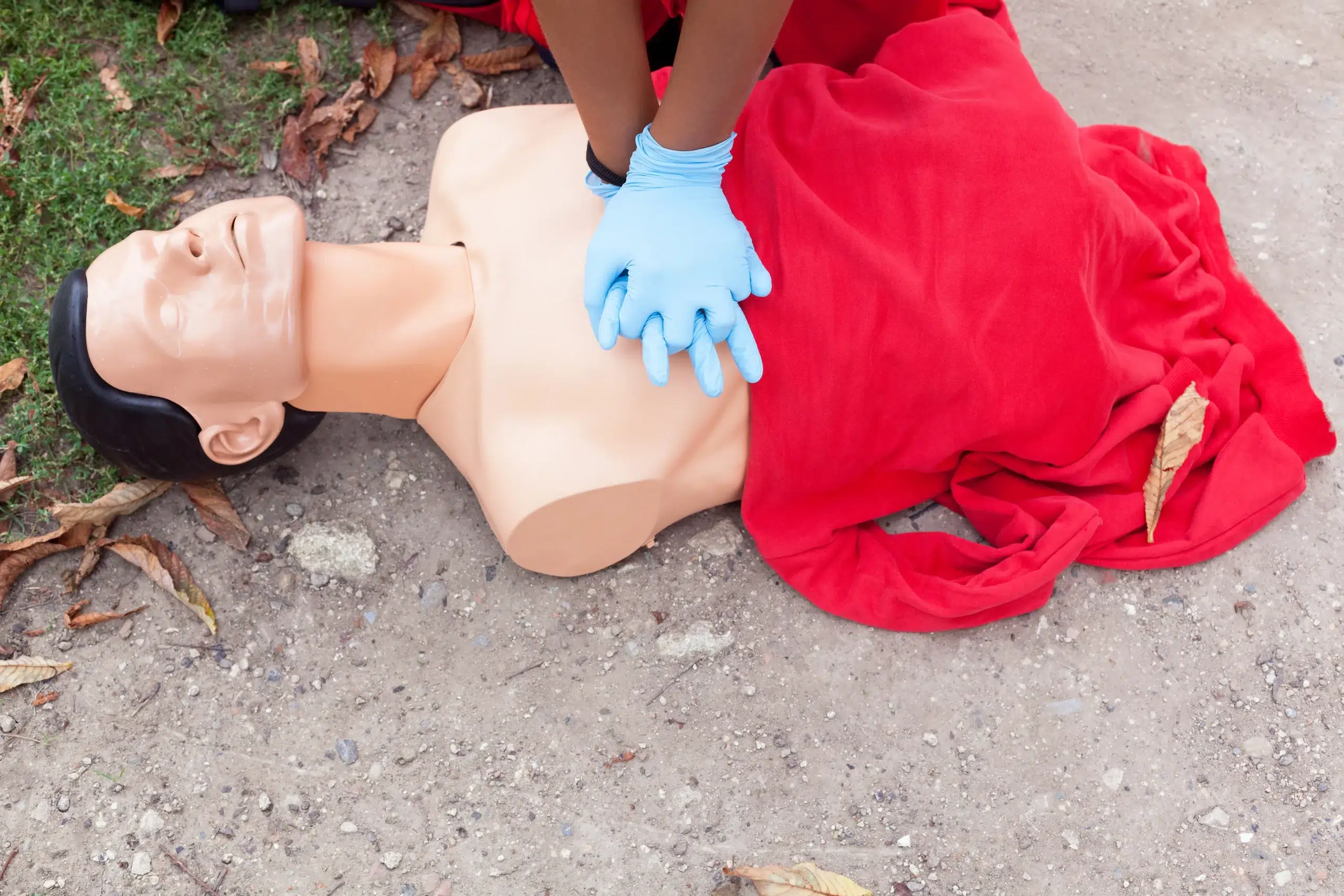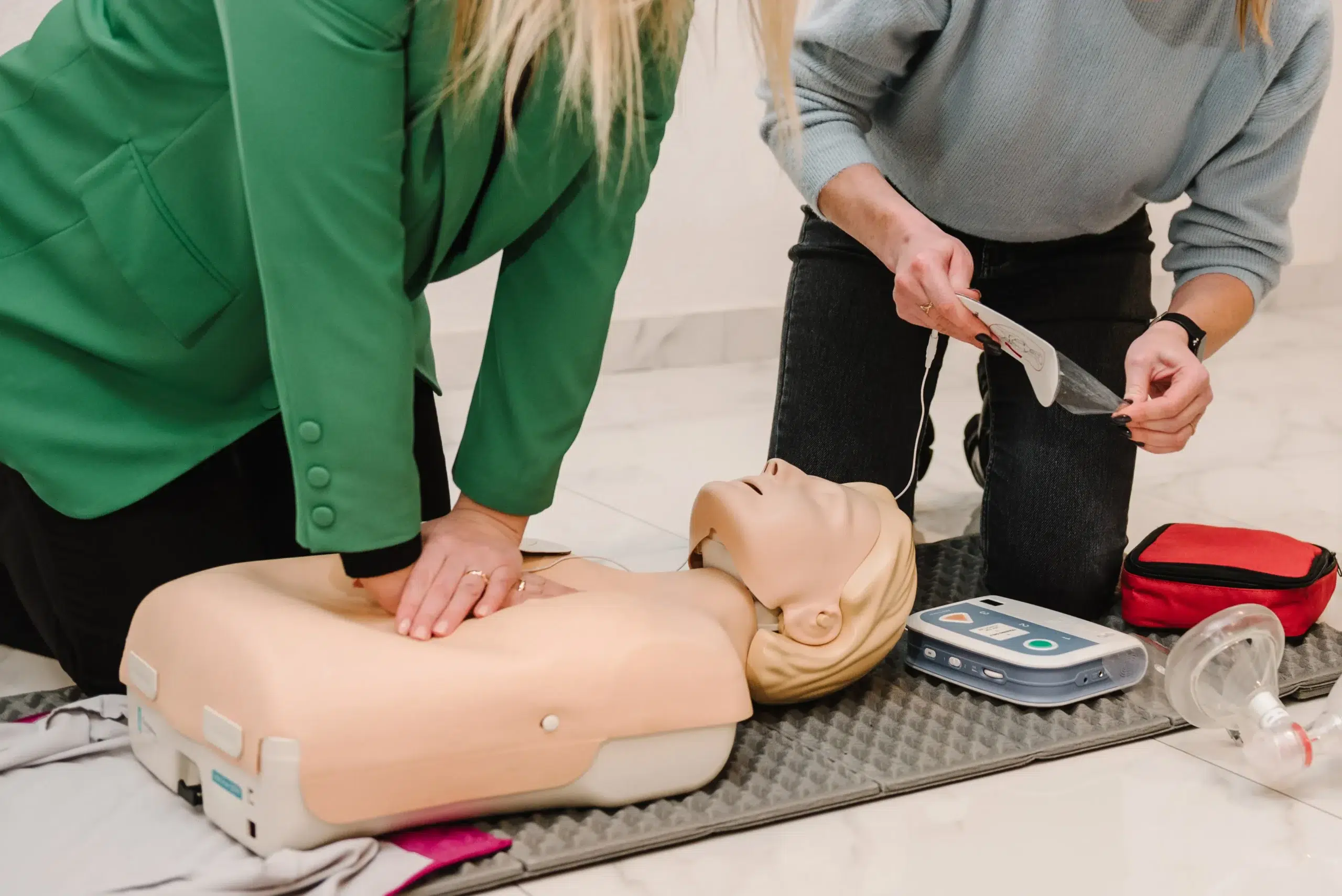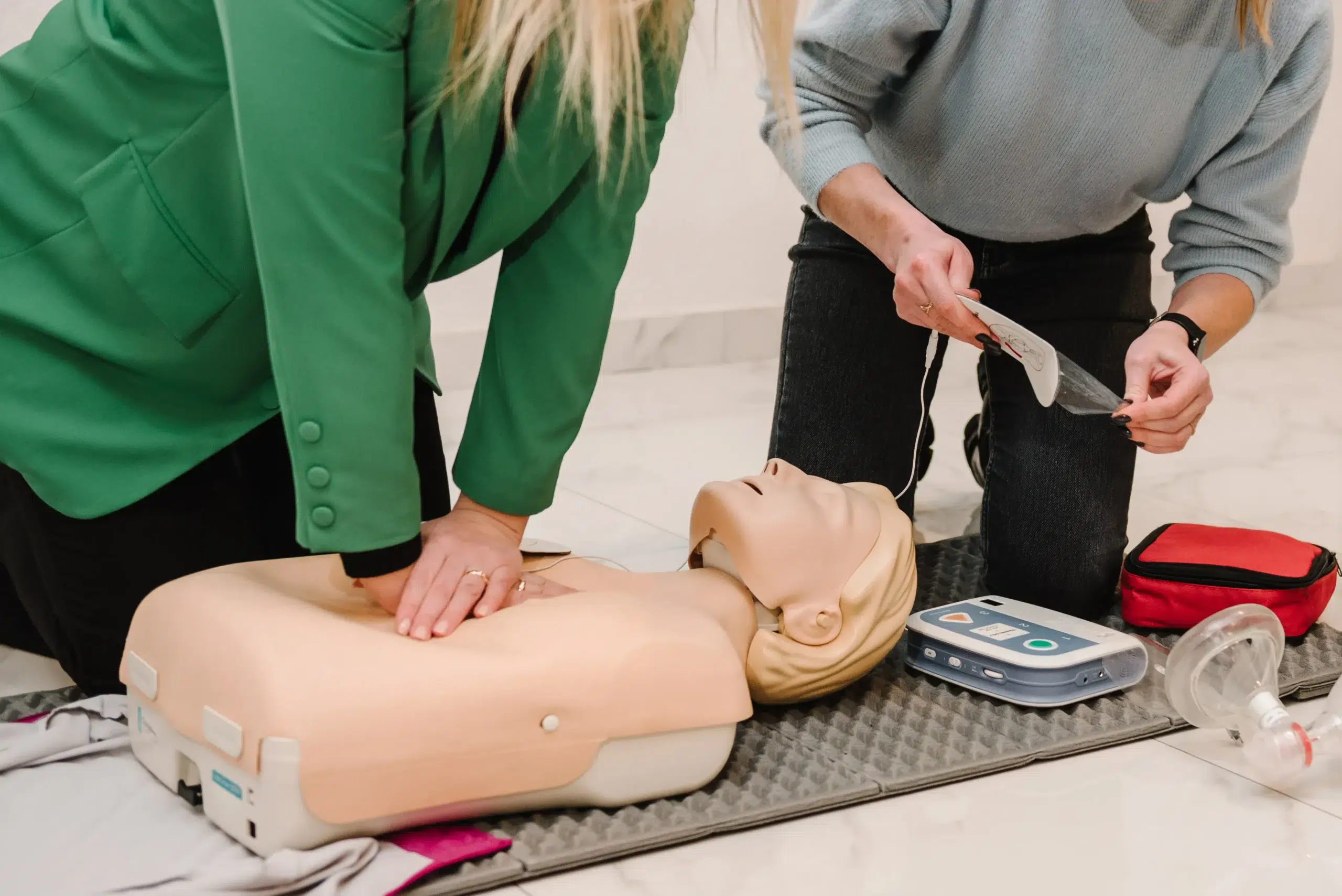PALS Training in Citrus Heights: Every second counts in a pediatric emergency. As a healthcare provider in Citrus Heights, having the right training can mean the difference between life and death. Pediatric Advanced Life Support (PALS) certification empowers you to respond effectively and confidently in these critical situations. This article explores the essential aspects of pediatric advanced life support in Citrus Heights, from course content and scheduling to the value of AHA certification. We’ll delve into the skills you’ll gain, the benefits of local training, and how PALS can enhance your ability to provide the highest standard of care to young patients.
Key Takeaways
- PALS equips you to handle pediatric emergencies: This specialized training provides the knowledge and hands-on practice necessary to confidently manage critical situations involving infants and children, leading to better patient outcomes.
- Choosing the right PALS course matters: Consider factors like course format (in-person, online, or blended), cost, schedule, and instructor expertise to find a program that aligns with your needs and learning style. Local providers often offer added convenience.
- Prepare for your PALS course and stay certified: Review pre-course materials, come prepared for hands-on activities, and actively participate during training. Remember PALS certification requires renewal every two years, so plan to maintain your skills and knowledge long-term.
What is Pediatric Advanced Life Support (PALS)?
Definition and Purpose
Pediatric Advanced Life Support (PALS) certification is a specialized program designed to equip healthcare providers with the knowledge and skills to effectively manage pediatric emergencies. It focuses on a systematic approach to assessing and treating critically ill infants and children. This training is essential for anyone working in pediatric critical care, emergency medicine, or any setting where they might encounter a pediatric emergency. PALS emphasizes early recognition and intervention to improve outcomes for young patients.
Key PALS Training Components
PALS courses typically use a blended learning approach, combining online modules with in-person skills sessions and simulations. This format offers flexibility for busy professionals while ensuring participants receive both theoretical knowledge and practical experience. The online portion covers core concepts and allows students to learn at their own pace. The in-person sessions focus on hands-on training, including practicing essential skills like airway management, intravenous access, and medication administration. Our PALS courses use this blended learning format.
Skills and Techniques Taught
PALS training covers a wide range of skills and techniques specific to pediatric resuscitation and stabilization. Participants learn to recognize and manage respiratory distress, cardiac arrest, shock, and other life-threatening conditions in infants and children. The curriculum emphasizes the importance of teamwork, communication, and rapid response in emergency situations. A key aspect of PALS is the focus on post-resuscitation care, ensuring that providers understand how to stabilize and support children after a critical event. PALS instruction also addresses common mistakes in pediatric advanced life support to help providers avoid potential pitfalls.
Why PALS Matters for Citrus Heights Healthcare Providers
Improve Pediatric Emergency Outcomes
As a healthcare provider in Citrus Heights, you know seconds matter in a pediatric emergency. PALS certification equips you with the knowledge and skills to respond effectively. It emphasizes a systematic approach to assessment, treatment, and stabilization, ultimately leading to better outcomes for young patients. Investing in PALS training demonstrates a commitment to high-quality care and reinforces patient safety within the Citrus Heights healthcare community.
Meet Professional Requirements
Many healthcare roles require PALS certification. This specialized training ensures professionals possess the competencies to handle pediatric emergencies. Maintaining your certification demonstrates your ongoing dedication to professional development and adherence to industry standards. PALS recertification courses help you stay current with the latest protocols and maintain your credentials.
Build Confidence in Critical Situations
Facing a pediatric emergency can be stressful. PALS training goes beyond textbook knowledge, providing hands-on practice and simulated scenarios that build confidence in applying your skills under pressure. This practical experience bridges the gap between theory and practice, empowering you to respond decisively and effectively when it matters most. Knowing you have the training and skills reduces anxiety and allows you to focus on delivering the best possible care. Contact us at Citrus Heights CPR Classes to learn more about how PALS training can benefit you.
PALS Training in Citrus Heights
This section helps you find the right Pediatric Advanced Life Support (PALS) course in Citrus Heights, whether you’re a nurse, doctor, or other healthcare provider. We’ll cover where to find training, different course formats, and the importance of American Heart Association certification.
Where to Find Courses
Citrus Heights CPR Classes
Citrus Heights CPR Classes offers a comprehensive PALS course covering essential skills for pediatric emergencies. Their focus is preparing healthcare professionals to confidently handle critical situations involving children.
Dignity Health
Dignity Health’s PALS course aims to improve the treatment of children during medical emergencies. It’s designed for healthcare providers seeking to refine their pediatric care skills.
Safety Training Seminars
If affordability is a concern, Safety Training Seminars offers some of the lowest prices on life support training in Citrus Heights, including PALS. This makes high-quality training accessible to more people.
Sacramento CPR Classes
Sacramento CPR Classes provides a PALS Blended Learning course that combines online learning with hands-on training. This flexible format accommodates busy schedules while ensuring participants gain practical experience.
Course Formats (In-Person, Online, Hybrid)
PALS courses come in various formats. In-person classes provide direct interaction with instructors and hands-on practice. Online courses offer flexibility for self-paced learning, often incorporating interactive modules and simulations. Hybrid courses combine the benefits of both, allowing students to complete some coursework online before attending in-person skills sessions.
American Heart Association Certification
Earning your PALS certification through the American Heart Association (AHA) ensures you meet recognized standards for pediatric care. The AHA’s RQI program is a popular way to maintain your certification and focuses on continuous quality improvement in resuscitation practices. This certification is often a requirement for healthcare professionals and demonstrates a commitment to providing excellent care.
What Happens in a PALS Course?
PALS courses blend online learning with in-person skills sessions and simulations. This blended learning approach gives you both the knowledge and the practical experience to handle pediatric emergencies. Here’s what you can expect:
Course Curriculum Overview
Your PALS journey begins with online modules. These self-paced lessons cover core concepts like pediatric assessment, recognizing a child in distress, high-quality CPR, and managing common pediatric cardiac emergencies. This online portion builds a foundation and prepares you for the hands-on part of the course. Learn more about our PALS courses, including information on the blended learning format.
Hands-on Skills Practice
After completing the online modules, you’ll practice essential skills and techniques. Instructors will guide you through each step, providing feedback and ensuring you’re comfortable performing them correctly. This portion emphasizes practical application and building muscle memory for critical procedures. Our CPR courses are known for their hands-on training component.
Simulated Emergency Scenarios
PALS courses use realistic simulations to test your knowledge and skills in a safe environment. These scenarios mimic real-world pediatric emergencies, allowing you to practice your responses and decision-making under pressure. PALS simulations are invaluable for developing the confidence to apply your skills effectively during actual emergencies.
Voice-Assisted Manikin Use
You’ll use a voice-assisted manikin during the skills testing portion. This technology provides real-time feedback on your performance, helping you refine your technique and identify areas for improvement. While an instructor isn’t physically present during this test, support is available by phone if needed. Check out our low price guarantee for all our courses, including those using voice-assisted manikins.
PALS Course Costs & Finances
Knowing the cost of PALS training and available financial options can help you plan your certification journey. Let’s break down the typical expenses associated with PALS courses in Citrus Heights.
Average Course Pricing
The average cost of a PALS course in Citrus Heights is around $290. This usually covers the online PALS course material, the in-person skills testing session, and your PALS provider card. Citrus Heights CPR Classes offers a low price guarantee to ensure you’re getting a competitive rate. Remember that prices can vary slightly between providers, so it’s always a good idea to check with specific training centers for their most up-to-date pricing.
Group Discounts & Special Offers
If you’re training a group of colleagues or staff, ask about group discounts. Many providers, including Citrus Heights CPR Classes, offer reduced rates for group registrations. This can be a smart way to manage costs while ensuring your team receives high-quality PALS training. Contact Citrus Heights CPR Classes to discuss your group’s needs and explore options.
Student Discounts & Financial Assistance
Students and others facing financial constraints can still access quality PALS training. Citrus Heights CPR Classes offers a student discount to make these essential skills more affordable. Check with them about eligibility and how to apply the discount when you register. This commitment to accessibility helps ensure that everyone has the opportunity to learn PALS.
PALS Course Schedule & Flexibility
Finding a PALS course that fits your schedule shouldn’t be a struggle. Let’s break down the typical course structure, scheduling options, and different learning formats available.
Typical Course Duration & Structure
PALS courses typically blend online learning with in-person skills sessions. This blended learning approach starts with self-directed online modules covering core concepts like pediatric assessment, high-quality CPR, and managing pediatric emergencies. This flexible format lets you learn the material at your own pace before practicing your skills in person. For more information on course specifics, visit Citrus Heights CPR Classes.
Flexible Scheduling
We understand that healthcare professionals have demanding schedules. That’s why PALS courses are offered throughout the week, often with various start times. Check with your chosen provider for specific dates and times. You’ll likely find classes running from morning to evening, seven days a week, making it easier to fit the training into your busy life. Contact us to learn more about convenient scheduling options.
Blended Learning
The blended learning format combines online and in-person instruction. You’ll work through interactive online modules and then attend a hands-on session to practice your skills with certified instructors. This approach offers flexibility and reinforces learning through practical application. The American Heart Association’s RQI program is a popular example of this modern approach to PALS certification and recertification.
Renewal vs. Initial Certification
Whether you’re getting certified for the first time or renewing, the process is straightforward. Initial certification involves completing the full PALS course, including online and in-person components. Renewal courses are for those who already hold PALS certification and need to recertify. These are typically shorter and focus on reinforcing key skills and updating your knowledge of the latest protocols. Staying current with your certification ensures you’re equipped with the most up-to-date life-saving techniques.
PALS Instructors & Certification
Instructor Expertise
PALS instructors are experienced healthcare professionals with a deep understanding of pediatric emergency care. They’re mentors dedicated to equipping you with the skills and confidence to handle critical situations involving infants and children. For healthcare providers in Citrus Heights, PALS certification signifies a dedication to excellence. Look for instructors who actively practice in the field, bringing real-world experience to the classroom. This practical knowledge translates into more effective training and better preparedness for real-life emergencies.
AHA Certification Standards
Choosing an AHA-certified PALS course is crucial. AHA certification ensures the course content aligns with the latest scientific guidelines and best practices in pediatric resuscitation. This rigorous training prepares you to effectively respond to pediatric emergencies and provide the highest standard of care. AHA certification is a recognized mark of quality in the healthcare field, demonstrating your commitment to providing evidence-based care.
Get PALS Certified
Getting PALS certified involves a comprehensive course that combines theoretical knowledge with hands-on practice. The PALS Blended Learning course offers a flexible way to earn certification by combining online learning with in-person skills sessions. This blended learning format lets you study at your own pace and then apply your knowledge during practical training. Hands-on practice and simulated scenarios are essential components of a comprehensive PALS course.
Maintain Certification (Renew Every Two Years)
PALS certification is valid for two years. To maintain your certification, complete a renewal course and pass the required assessments. Staying current on the latest pediatric emergency protocols is also essential. Regularly reviewing updated guidelines and participating in continuing education will help you maintain your skills and knowledge. This ongoing commitment to professional development ensures you’re always prepared to provide the best possible care.
Prepare for Your PALS Course
Getting ready for your PALS course involves a few key steps. Knowing what to expect and how to prepare can make a real difference in your learning experience. This section covers everything from pre-course materials to practical tips for success.
Pre-course Materials & Prerequisites
Before your PALS course begins, you’ll likely receive pre-course materials. These might include a study guide, online modules, or other resources to familiarize yourself with core concepts. Check with your chosen provider, like Citrus Heights CPR Classes, for details on what they offer. The time commitment for online coursework varies based on your existing knowledge—BLS usually takes 1–2 hours, while ACLS or PALS requires 3–4 hours. Having a current BLS Provider certification is often a prerequisite for PALS, so make sure you’re up-to-date.
Equipment & Dress Code
PALS courses are hands-on. You’ll be actively participating in simulations and practicing skills, so comfortable clothing is recommended. Sacramento PALS courses offer comprehensive, hands-on instruction, giving you a good idea of what to expect. All necessary equipment, like manikins and training materials, will be provided as part of the course.
Tips for Course Success
To get the most out of your PALS training, come prepared to actively participate. Ask questions, engage in discussions, and take advantage of the hands-on practice. Reviewing the pre-course materials beforehand can also give you a solid foundation. Remember, the goal is to build your confidence and competence in managing pediatric emergencies. And don’t forget about ongoing learning! Maintaining your PALS certification requires renewal courses, assessments, and staying current with the latest protocols.
Overcome Real-Life Challenges
One of the biggest hurdles for many healthcare providers is fitting PALS training into their busy schedules. Talk to your employer about scheduling options or explore blended learning formats that combine online modules with in-person skills sessions. Another common challenge is focusing too much on the resuscitation phase and not enough on post-resuscitation care. Common PALS mistakes often include overlooking this crucial aspect of patient care. Remember, comprehensive care is essential for the best patient outcomes. Balancing work and training can be tough, but with a little planning and the right resources, you can successfully complete your PALS course and enhance your skills.
Related Courses & Choosing a PALS Provider
Complementary Courses for Pediatric Care
PALS certification is a vital step, but it’s often part of a larger professional development journey. Think of it as one powerful tool in your toolkit. To provide truly comprehensive pediatric care, consider pairing your PALS training with other courses like Basic Life Support (BLS), Advanced Cardiovascular Life Support (ACLS), and the Neonatal Resuscitation Program (NRP). These courses build upon each other, creating a strong foundation for responding to various medical emergencies. Having this combined knowledge makes you a more adaptable and effective healthcare provider. Citrus Heights CPR Classes offers these related courses, allowing you to streamline your training.
Choose the Right Provider
Choosing the right PALS provider is just as important as the certification itself. Look for a provider committed to high-quality instruction and practical, hands-on training. A good provider will offer courses taught by experienced, certified instructors. Check if the provider is affiliated with a reputable organization like the American Heart Association. This ensures the curriculum meets the latest guidelines and your certification is widely recognized. Consider factors like class size and location. Smaller classes often allow for more personalized attention. Finally, don’t hesitate to contact potential providers and ask questions.
Benefits of Local Training
One of the biggest advantages of choosing a local provider like Citrus Heights CPR Classes is convenience. With daily classes in over 60 Northern California cities, you can find a course that fits your schedule. Local training also allows you to connect with other healthcare professionals in your community. Learning in a familiar environment can make the training experience more comfortable.
Importance of AHA Certification
American Heart Association (AHA) certification carries significant weight in the healthcare field. It’s a recognized standard of excellence, demonstrating your commitment to providing high-quality patient care. AHA-certified courses adhere to rigorous guidelines, ensuring you receive up-to-date training. This enhances your professional credibility and gives you the confidence to respond effectively in critical situations. When you choose an AHA-certified PALS course, you’re investing in your career and the well-being of your patients.
Related Articles
- AHA PALS Classes in Citrus Heights, CA – Citrus Heights CPR Classes
- BLS Classes in Sacramento: Your Complete Guide – Citrus Heights CPR Classes
- CPR, BLS, ACLS, PALS, & First-aid Courses in Citrus Heights, CA
- Best CPR Training in Sacramento: Courses & Providers – Citrus Heights CPR Classes
- CPR Training in Sacramento: Your Guide – Citrus Heights CPR Classes
Frequently Asked Questions
What is the difference between PALS and BLS?
BLS (Basic Life Support) teaches fundamental life-saving skills applicable to anyone, while PALS (Pediatric Advanced Life Support) builds upon those skills with specialized techniques for healthcare providers responding to pediatric emergencies. Think of BLS as the foundation and PALS as the next level for those working specifically with infants and children.
How long does a PALS certification last, and how do I renew it?
PALS certification is valid for two years. To renew, you’ll need to complete a PALS recertification course before your current certification expires. This refresher course covers updates to guidelines and reinforces essential skills.
What if I have a busy schedule? Are there flexible PALS course options?
Absolutely! PALS courses are designed with busy professionals in mind. Many providers offer blended learning formats, combining online modules with shorter in-person skills sessions. This allows you to learn the material at your own pace and then demonstrate your skills in a hands-on setting. Weekend and evening classes are also often available.
Why should I choose an AHA-certified PALS course?
American Heart Association (AHA) certification ensures your training meets the highest standards. AHA courses adhere to the latest evidence-based guidelines and are taught by certified instructors. This recognized credential demonstrates your commitment to quality patient care and enhances your professional credibility.
What if I don’t work in a hospital? Do I still need PALS certification?
While PALS is often required for hospital-based healthcare providers, it’s valuable for anyone regularly interacting with infants and children in a medical setting. This could include professionals in clinics, schools, or other organizations where pediatric emergencies might occur. Even if not strictly required, PALS certification demonstrates your preparedness and commitment to providing the best possible care.








